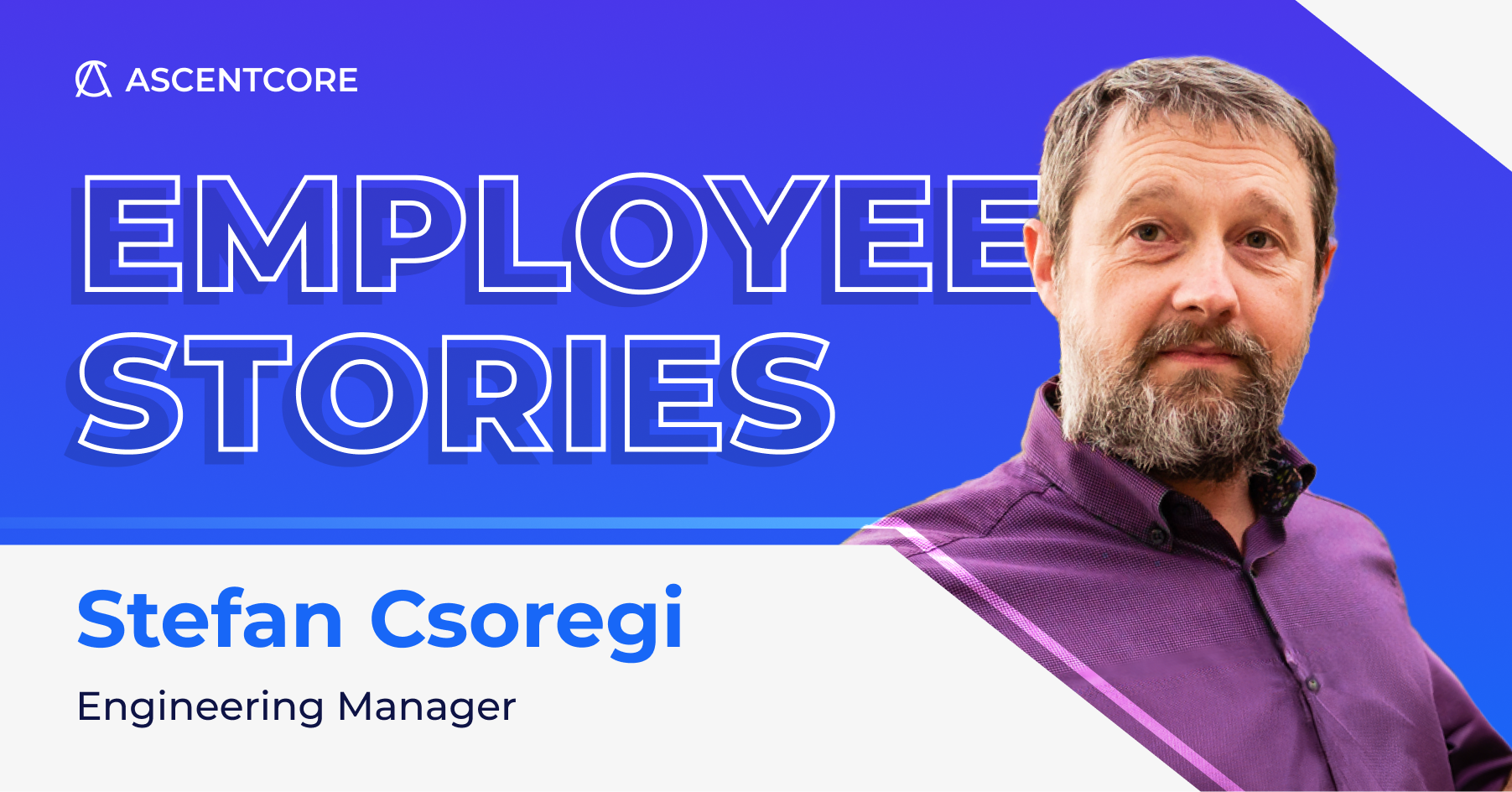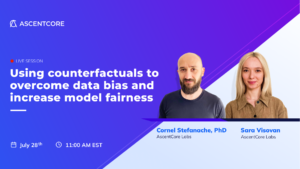One of the most down-to-earth people you’ll meet, Stefan had a sit with us for a much-needed discussion about his passions, about his professional journey thus far, what makes him tick, and most of all, how he conducts his day-to-day business and how he manages his team. Having said this, his view on how a team should collaborate is something you need to check out. Also, should you ever come in need of a beer expert, he’s your guy! And we do mean this.
Tell us a bit about yourself. How does Stefan usually spend his personal time?
Too often I hear the answer to this question, “What free time? I do not have free time.” which is quite sad. Fortunately, I can say that I do have free time, as I am able to properly switch between working and non-working hours, even when working from home. I usually like to spend my free time with my family, with classic, not-too-fancy activities like biking, skiing, hiking, visiting different places, seaside vacations, watching movies, etc. I can also say that I am a beer and red wine fan.
What led you on your career path, to ultimately become an Engineering Manager?
I started as a Full Stack Software Developer, working on every technology needed on the projects I was involved in (PHP, ASP, ASP.Net, ColdFusion, MySQL, MSSQL, JavaScript, ActiveX,…). I’ve done this for about 7 years and I really liked it. When the opportunity came, I moved to the position of Development Manager. At that time, advancing to a management position was quite normal in a software company. I liked this part too, and as opportunities continued in this direction, I’ve taken different management roles, as Project Manager, Technical Account Manager, Technical Program Manager, and now, as an Engineering Manager in AscentCore.
What does a typical workday look like for you?
There is no typical workday, I don’t remember when I had two days that looked alike, the only constant is the fact that things evolve and change during each day. Usually, I start my day with a coffee and a bit of chit-chat with the colleagues that are unlucky enough to meet me in the kitchen, when I am at the office. Then I look over the offline messages, the meetings that I have set for the day, and the things planned from the previous days and I build a high-level plan of the things to do. Afterward, things evolve depending on the events that happen during the day. Sometimes I have time to act on the planned items from the morning, and sometimes new higher priority things appear, so the plan is changing. This might sound like a negative aspect, but it is not, it is normal for the workday to evolve and to bring challenges, opportunities, and new priorities that have to be acted on, which is actually something that makes this work more interesting.
What do you believe is key in building a tight-knit team? How do you keep people motivated within the team?
This is quite a big topic to be addressed in several words. Some of the things I do in order to build a tight-knit and motivated team are:
I try as much as possible to include the team members in decision-making or even letting them decide without my involvement, and if I have to make a decision or if it comes from outside of the team, to explain the reason for which it was taken.
An important aspect is for the team to understand that making mistakes is not always bad and that trying new things, adapting, seeing how things work, and doing the necessary tweaks is normal and expected.
Involving the team in organizational aspects, not only in the technical ones, is also important, as too often it happens that the technical teams work and do things that they do not understand, just because they are imposed by someone else.
As much as possible I also try to delegate, give ownership, work on building relationships, and be open, transparent, and honest.
What is your favorite tech?
Towards the end of my Software Developer career, I specialized in Microsoft technologies, for which I grew to be a fan. This was because I had everything needed to build the necessary solutions: Database, programming languages to cover desktop and web applications (I did not work on any mobile apps), a powerful IDE with capabilities to integrate with source control solution, also offered by Microsoft, and also the capability and tools for server configuration (this was before Cloud being the norm).
Using old software like Visual Studio 6 which was launched in 1998 and SQL Server 2000 brought a pleasant surprise as they had powerful capabilities and features.
What’s the best piece of tech-related media you’ve read/watched/listened to?
What I really like lately are the tech communities that we have set up in AscentCore, in which our colleagues bring into discussion various topics that they are interested in. I enjoy the topics and especially the involvement and interactions that it brings between people who don’t usually work together.
Which is your favorite AscentCore value and why?
I cannot choose anything less than all the three values put together. They are truly powerful together and cover the needs of a software company.
By doing things with integrity you gain trust and you are being valued by your peers.
Good relationships bring collaboration, shared views and goals, and even friendships which are vital in having a healthy work environment. Also, when disputes and different opinions emerge it is easier to reach common ground if there is a good relationship between colleagues. Without results, we would not be able to offer the best services to our clients and we would not have a true collaboration with them as we strive for.
What is the most important lesson you’ve learned in your time here at AscentCore?
In the first months after I joined AscentCore it was challenging to understand some aspects of the delivery process that was asked by our client, and it took me a while to get used to it.
The important lesson that I’ve learned is that the client knows their business the best, so we need to deliver what and how they are requesting, and putting their needs first is very important, which sometimes means getting over our perceptions and beliefs even if they were true and would be valid in other contexts.
AscentCore celebrates its 5-year anniversary this year. Could you share your favorite moment from your time in the company? What are you most excited about for the years to come?
In the almost two years since I’ve joined AscentCore there were many moments that I will remember with pleasure, from the team buildings and dinner with the colleagues in AscentCore and with the client, to the ones that at the time of happening were stressful and difficult to handle, like the way we acted when there were production incidents or when having to hit a tight deadline, which, in the end contributed to building a stronger relationship between the team members and with the client.
For the future I am keen to see AscentCore grow as healthy and fast as it has so far, on the existing projects and collaborations, but also to see what else comes as new opportunities. Getting more opportunities in AI/ML would also be something that I would like to see.



